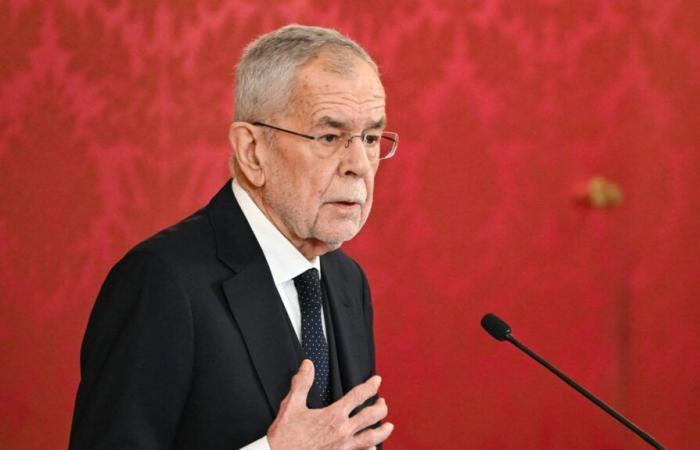After three months of unsuccessful negotiations, Austrian President Alexander Van der Bellen tasked Monday, January 6, 2025, the leader of the Austrian Freedom Party (FPÖ), Herbert Kickl, on the far right of the political spectrum, with hold new discussions with the conservatives to form a coalition. A first in the history of this country.
Although the FPÖ has already participated in power as a minority partner, it has never held the chancellery in this EU member state.
A failure which “reinforced the extremes”
A decision which finds particular resonance with its large German neighbor which hopes to regain political stability following the legislative elections of February 23, caused by the breakup of the centrist coalition at the beginning of November.
“Austria shows what happens when you are no longer able to form an alliance”declared Green Economy Minister and Vice-Chancellor Robert Habeck, on Deutschlandfunk radio.
He called on traditional parties to show openness: “If the center parties are unable to ally and believe that compromises are evil, this helps the radicals”he added in reaction to the failure of coalition talks between conservatives, social democrats and liberals in Austria.
This is a “warning, which says that the parties in the center of the spectrum have not succeeded in changing their policies”, underlined Alexander Dobrindt, head of deputies of the CSU, the Bavarian ally of the Christian Democratic Union (CDU), on the RTL and ntv channels. This failure has “reinforced the extremes, in this case the FPÖ”underlined the right-wing MP.
-“The politics of “sanitary cordon” failed »rejoiced for her part the leader of the German far-right party AfD, Alice Weidel, in a reaction to the regional newspaper Rhenish Post.
In a press release, she calls on the leader of the German conservatives, Friedrich Merz, not to “ignore the clear will of voters” end of February. “The firewall against the AfD built by Friedrich Merz under pressure from left-wing parties in Germany will not last either”she predicts.
Polls in Germany still show the CDU well in the lead with more than 30% of the vote, ahead of the AfD at around 20%, the SPD at 16% and the Greens at 13%.
Both the right and the left have ruled out co-governing with the far right. A coalition between conservatives and social democrats currently seems the most likely option.






